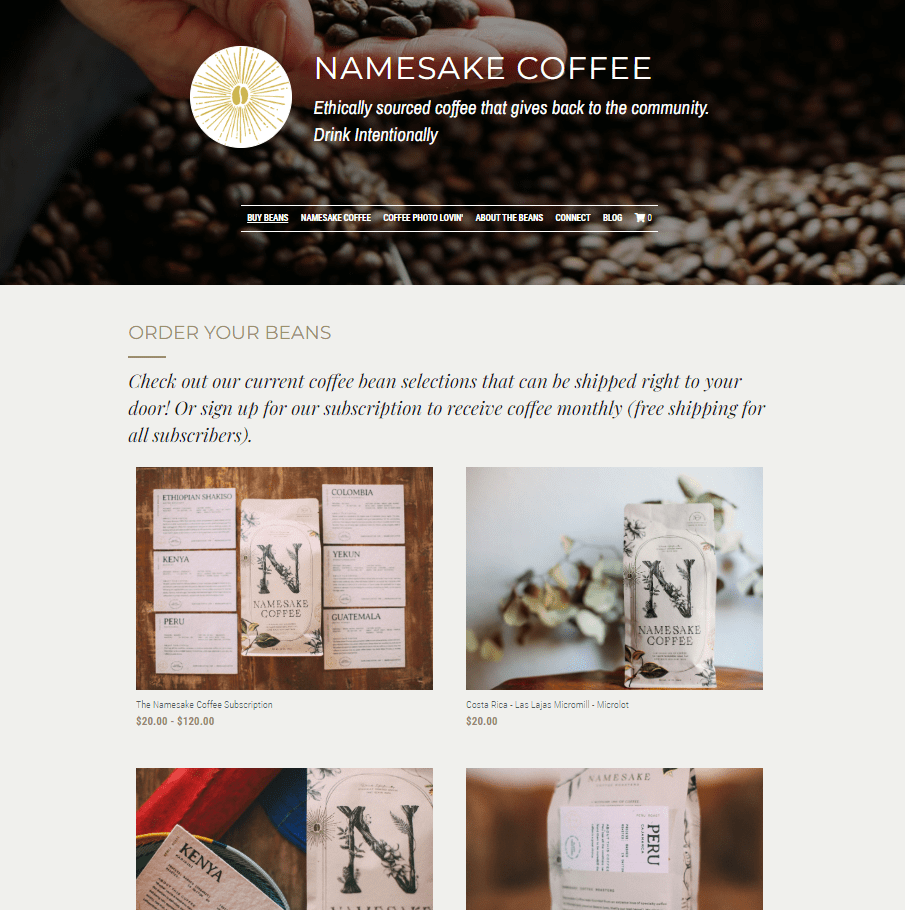Unlocking the Power of Business Ownership
Unlocking the Power of Business Ownership
Owning a business is like holding the key to a world of opportunities and challenges. It's a journey that demands dedication, resilience and a deep understanding of the power of business ownership. As entrepreneurs, we embark on this path with the hopes of reaping the benefits that come with it. But we must also acknowledge the hurdles that await us along the way.
The Power of Business Ownership: An Overview
Business ownership grants individuals the freedom to create their destiny, shape their vision, and build something from scratch. It empowers us to take control of our future and make decisions that align with our values and goals. The power lies in building something meaningful and impactful while having the flexibility to adapt to changing times.
Benefits of Owning a Business
The benefits of owning a business are plentiful. Firstly, it provides financial independence, allowing us to generate income based on our efforts and ideas rather than relying solely on a fixed salary. Additionally, it offers an avenue for personal growth and fulfillment as we pursue our passions and turn them into profitable ventures.
Moreover, owning a business allows us to create jobs for others, contributing positively to society by fostering economic growth and development within our communities. We can make a difference in people's lives while pursuing our dreams.
Challenges of Being a Business Owner
However, let's pay attention to the challenges with business ownership. From managing finances and dealing with competition to handling employee issues and navigating complex legalities, being a business owner requires wearing multiple hats simultaneously.
It demands resilience in the face of adversity and an ability to adapt swiftly amidst ever-changing market conditions. Aspiring entrepreneurs need to be aware of these challenges to prepare themselves accordingly.
The Role of SEO Content in Business Success
In today's digital age, online presence is crucial for business success. This is where SEO (Search Engine Optimization) content comes into play. By strategically optimizing website content, businesses can increase their visibility on search engines like Google, attract organic traffic, and drive conversions.
SEO content acts as a bridge between businesses and their target audience. It helps potential customers find the needed information, establishes credibility, and builds trust. In a world of fierce competition, mastering the art of SEO content writing can be the key to unlocking success in business ownership.
Understanding Business Ownership for Small Business Owners
Business ownership is the foundation of entrepreneurship and a key driver of economic growth. It refers to an individual or group's legal rights and responsibilities over a business. The importance of business ownership cannot be overstated, as it allows individuals to pursue their passions, create wealth, and contribute to their communities.
Importance of Business Ownership for Small Business Owners
Business ownership encompasses the rights and controls individuals or groups have over a business entity. It involves making critical decisions, assuming financial risks, and enjoying the rewards of success. Whether it's a small startup or a large corporation, business ownership gives individuals autonomy and the ability to shape their destinies.
Types of Business Ownership: An Introduction
Entrepreneurs can choose from several business ownership structures based on their goals, resources, and preferences. These include sole proprietorship, partnership, corporation, and limited liability company (LLC). Each system has its advantages and disadvantages that need to be carefully considered.
The Pros and Cons of Different Ownership Structures
A sole proprietorship is the simplest form of business ownership where an individual operates a business as an extension of themselves. It offers complete control over decision-making and exposes the owner's assets to liability.
Partnerships involve two or more individuals sharing responsibilities, resources, risks, and profits. They offer shared decision-making power but can lead to conflicts if partners have different visions for the business.
Corporations are separate legal entities owned by shareholders who enjoy limited liability protection. They offer access to capital through stock offerings but require complex governance structures.
LLCs combine aspects of partnerships and corporations by providing limited liability protection while allowing for flexibility in management and taxation. However, they may require additional paperwork and fees compared to other structures.
Exploring Common Types of Business Ownership for Small Business Owners
Sole proprietorships are common among freelancers, consultants, and small service-based businesses. Partnerships are often formed by professionals such as lawyers, doctors, or accountants who want to pool their expertise and resources. Large-scale enterprises commonly see corporations, while LLCs are popular among small businesses seeking flexibility and protection.
Understanding the different types of business ownership is crucial for aspiring entrepreneurs. It allows them to choose a structure that aligns with their goals, mitigates risks, and maximizes growth opportunities. However, selecting the right system requires careful consideration of legal requirements, tax implications, liability protection, and future growth prospects.
As an expert SEO content writer, I encourage small business owners to seek professional advice when deciding on their business ownership structure. Consulting with attorneys, accountants, or business advisors can provide valuable insights into different structures' legal and financial implications. They can guide entrepreneurs in making informed decisions that set them up for long-term success.
In conclusion, understanding the various types of business ownership is essential for entrepreneurs embarking on their journey toward success. By carefully considering the pros and cons of each structure and seeking professional guidance when needed, business owners can pave the way for growth and prosperity in their ventures. Remember to leverage SEO strategies to reach a wider audience online and consider platforms like Strikingly to harness the features that facilitate business growth.
Types of Business Ownership for Small Business Owners
Image taken from Two Little Bells
There are several different structures to consider when it comes to business ownership. Each type has advantages and disadvantages, so it's essential to understand them before deciding. Let's explore the four common types of business ownership: sole proprietorship, partnership, corporation, and limited liability company (LLC).
1. Sole Proprietorship: A One-Person Show
In a sole proprietorship, the business is owned and operated by one individual. This is often the most straightforward form of business ownership. As the sole proprietor, you have complete control over decision-making, and all profits belong to you.
However, being a one-person show also means that you bear all the risks and responsibilities of the business. You are personally liable for any debts or legal issues that may arise. Despite these challenges, many entrepreneurs choose this structure due to its simplicity and ease of setup.
2. Partnership: Collaboration and Shared Responsibility
Partnerships involve two or more individuals who come together to run a business. This type of ownership allows partners to share responsibilities, resources, and expertise. It can be ideal for those who want to combine their skills or share the financial burden.
Partnerships can take different forms, such as general or limited partnerships, where some partners have limited liability. However, it's crucial to have a solid partnership agreement in place that outlines each partner's roles, responsibilities, and profit-sharing arrangements.
3. Corporation: Separate Entity with Shareholders
A corporation is a separate legal entity from its owners, known as shareholders. It offers limited liability protection for shareholders since their assets are generally not at risk in case of financial difficulties or lawsuits.
Corporations require more formalities, such as issuing stock certificates, holding regular meetings with shareholders and directors, and adhering to specific regulations. They can be advantageous when seeking outside investment or planning for long-term growth.
Limited Liability Company (LLC): Flexibility and Protection
An LLC combines a corporation's liability protection with a partnership's operational flexibility. It provides personal asset protection for its owners, known as members while allowing more freedom in terms of management and taxation.
LLCs are becoming increasingly popular among small business owners due to their simplicity and flexibility. They offer the benefits of limited liability without the same level of formalities required by corporations. This structure favors entrepreneurs who want to protect their assets while controlling their business decisions.
By understanding the different types of business ownership, entrepreneurs can choose the structure that best aligns with their goals, resources, and risk tolerance. Each option has unique advantages and considerations, whether it's a sole proprietorship, partnership, corporation, or LLC.
Unlocking the Power of Business Ownership
Image taken from Inspire Organics
As a small business owner, there are numerous advantages to embracing business ownership.
1. You Get Full Control
Firstly, it allows you to have complete control over your destiny and the ability to make crucial decisions that shape the direction of your business. You can create your vision and implement strategies that align with your goals. Additionally, being a business owner provides a sense of fulfillment and personal satisfaction as you see your ideas come to life and witness the growth of your venture.
Building a solid online presence is crucial for the success of any business in today's digital age. With more people turning to the internet for their purchasing decisions, having a robust online presence ensures potential customers can easily find and engage with your brand. By establishing a professional website, optimizing it for search engines, and utilizing various digital marketing techniques, you can effectively reach a wider audience and increase brand visibility.
3. Maximizes Reach
Leveraging SEO strategies is essential for reaching a broader audience and driving organic traffic to your website. You can improve your website's search engine rankings by incorporating relevant keywords, optimizing meta tags, creating high-quality content, and building backlinks from reputable sources. This increased visibility increases brand awareness, and drives targeted traffic to your site, resulting in higher conversion rates and ultimately boosting sales.
One effective platform for building an online presence is Strikingly. With its user-friendly interface and customizable templates, Strikingly allows small business owners to create stunning websites without any coding knowledge or technical expertise. Its intuitive design tools enable you to showcase products or services effectively while maintaining an aesthetically pleasing layout. Additionally, Strikingly offers built-in SEO features that simplify optimizing your website for search engines, further enhancing its discoverability.
4. Protection
Choosing the proper business ownership structure is crucial to ensure legal compliance and maximize benefits. When selecting a network, liability protection, tax implications, and management flexibility should be considered. Sole proprietorship, partnership, corporation, and limited liability company (LLC) are common business ownership structures, each with advantages and disadvantages. Seeking professional advice from lawyers or accountants can help you determine the most suitable system for your needs.
Embracing business ownership offers numerous advantages for small business owners. Building a solid online presence through effective SEO strategies is essential for reaching a wider audience and driving business success. Platforms like Strikingly provide valuable tools to create visually appealing websites while optimizing them for search engines. By carefully considering the different types of business ownership structures and seeking professional advice when needed, you can unlock the full potential of your entrepreneurial journey.
Business Ownership Structure
1. Choosing the Right Business Ownership Structure for Your Needs
When it comes to business ownership, selecting the proper structure is crucial for long-term success. Your choice will impact various aspects of your business, including legal obligations, taxation, and personal liability. It's essential to consider your specific needs and goals before deciding on a structure.
2. Factors to Consider When Selecting a Structure
Several factors should be considered when determining your business's most suitable ownership structure. Consider the level of control you desire, the extent of liability protection you need, and the flexibility required for future growth. Additionally, consider how taxes will be handled and whether you anticipate bringing in partners or investors.
3. Legal and Tax Implications of Different Ownership Structures
Each type of business ownership structure has its legal and tax implications. For example, sole proprietorships offer simplicity but leave owners personally liable for debts and obligations. Partnerships provide shared responsibility but also entail shared liability. Corporations offer limited liability protection but are subject to more complex legal requirements. Limited Liability Companies (LLCs) provide a balance between flexibility and security.
4. Seeking Professional Advice for Optimal Business Structure
Navigating the complexities of business ownership structures can only be challenging with proper guidance. It's highly recommended to seek professional advice from attorneys or accountants specializing in small businesses. They can help you understand the nuances of each structure, assess your unique circumstances, and guide you toward making an informed decision that aligns with your goals.
Choosing the proper business ownership structure is like laying a solid foundation for your entrepreneurial journey. Each option has advantages and disadvantages, so weighing them carefully against your specific needs and aspirations is crucial. You can set your business up for success and unlock its full potential with the proper structure.
Start Your Business Ownership for Small Business Owners Journey With Us!
Image taken from Dr. Chai Tea
Taking the Leap: Embracing Business Ownership
Embracing business ownership is a bold move that can lead to incredible opportunities and personal fulfillment. Individuals can shape their destinies and create something meaningful by leaping into entrepreneurship. However, it's important to remember that starting a business requires dedication, hard work, and perseverance.
The Importance of Continuous Learning and Adaptation
In the ever-evolving world of business ownership, continuous learning and adaptation are crucial for success. Staying ahead of industry trends, acquiring new skills, and adapting to changing consumer demands are essential for staying competitive. By embracing a mindset of lifelong learning, business owners can continuously improve their strategies and stay ahead of the curve.
Maximizing the Potential of Your Business Ownership
To maximize the potential of your business ownership, it's essential to leverage all available resources and tools. One such tool is Strikingly, a powerful website builder that empowers entrepreneurs to create stunning online platforms without coding knowledge. With Strikingly's user-friendly interface and customizable templates, business owners can effectively showcase their products or services while reaching a wider audience.
Unlocking Success: Striking It Big as a Business Owner
Striking it big as a business owner requires dedication, strategic planning, and effective execution. By choosing the proper ownership structure for your needs and understanding its legal and tax implications, you can set a solid foundation for growth. Additionally, by implementing SEO strategies to improve your online visibility and leveraging platforms like Strikingly to build a solid online presence, you can reach a wider audience and unlock new opportunities for success.
Want to know more about building your business website? Chat with us today!





